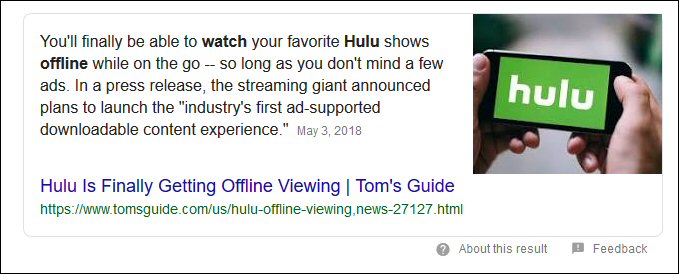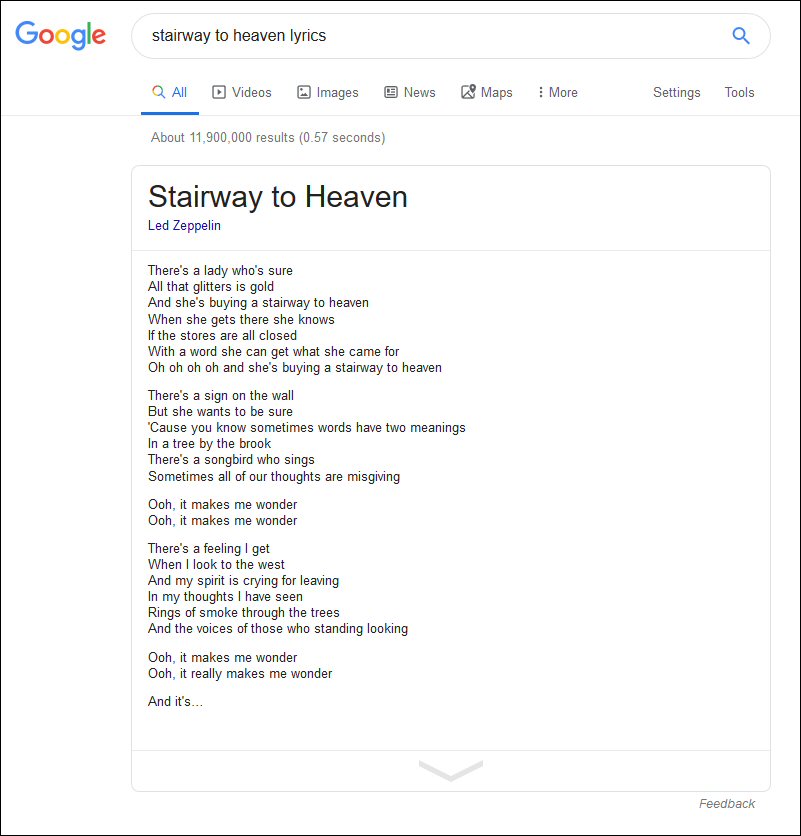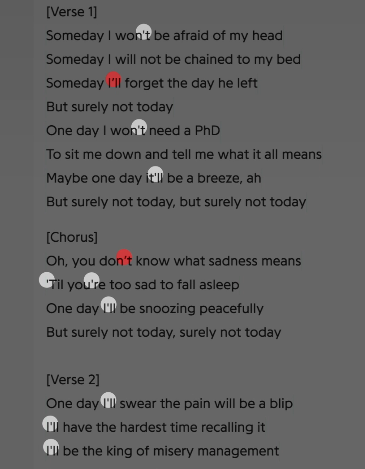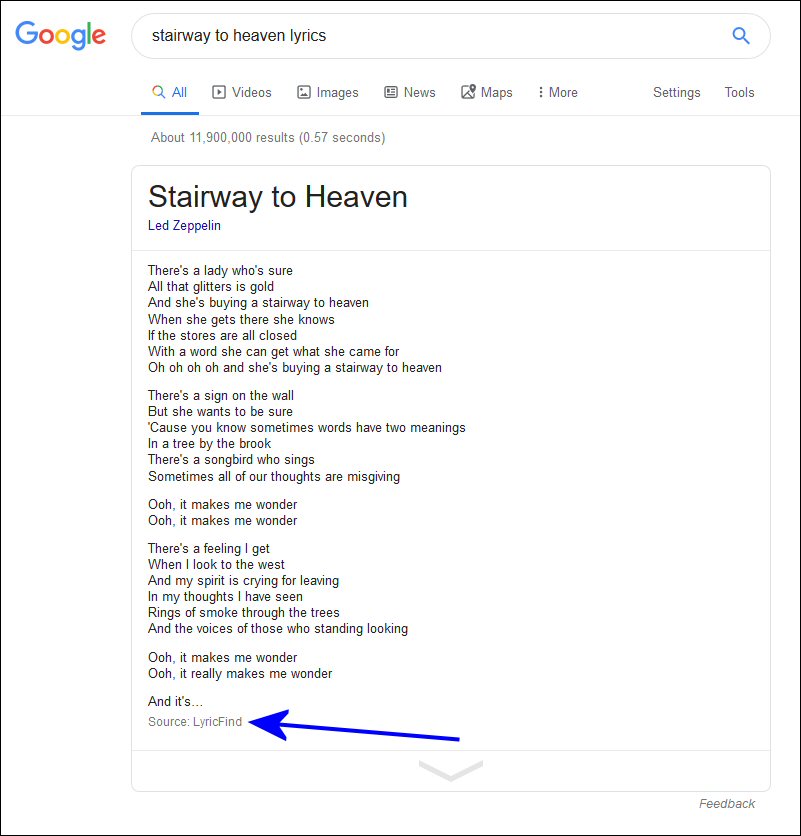Google: Facing the Music
The following is a quick study of the fascinating dynamics behind search page results. Most people don’t think too much about the complex nature of how Google arrives at its results, but that’s exactly what we do here at Five Blocks.
A Wall Street Journal story last month accused Google of sourcing content without giving credit to the source. The article said Google had been scraping music lyrics from genius.com, a popular lyrics site.
Some quick background: When you search for the lyrics of a song, Google often shows the lyrics in what’s called a “rich snippet”.
What are Rich Snippets? you may ask.
Rich snippets are boxes that contain content clipped directly from a third-party web page. Google uses these rich snippets because it is the fastest way to get searchers the answer to their query.
Here is an example:
This is all fine as long as Google credits the source – and ideally provides a link to click.
However, in the case of song lyrics, Google seems to have provided the name of the artist, but not the website the lyrics came from – below is an image from before the WSJ story was published:
As you can imagine, song lyrics appear on lots of sites. So how could Genius.com be so sure that Google was scraping their site?
They ran a test. They embedded patterns of apostrophes in the formatting of song lyrics. If this pattern was replicated in the rich snippet in search results, it would prove that genius.com was the original source. They used two different types of apostrophes throughout the lyrics, as below (as seen in the WSJ.com article referenced above):
Genius checked the rich snippet, and found the apostrophe pattern replicated, proving the content came from their site.
But now the plot thickens — a development we became aware of after recently sharing this story with our partners.
The lyrics site LyricFind offered a rebuttal of the WSJ story, citing their licensing agreement with Google, and claiming that the content came from their site.
In fact, in the days following the publication of the WSJ story, Google began showing LyricFind as the source, and including a link.
But what about Genius.com’s test? Here’s what LyricFind says:
“Some time ago…Genius notified LyricFind that they believed they were seeing Genius lyrics in LyricFind’s database. As a courtesy to Genius, our content team was instructed not to consult Genius as a source. Recently, Genius raised the issue again and provided a few examples. All of those examples were also available on many other lyric sites and services, raising the possibility that our team unknowingly sourced Genius lyrics from another location. [Italics ours. – YG]
As a result, LyricFind offered to remove any lyrics Genius felt had originated from them, even though we did not source them from Genius’ site. Genius declined to respond to that offer. Despite that, our team is currently investigating the content in our database and removing any lyrics that seem to have originated from Genius.”
In any event, it seems that Google, having implemented the change of crediting the source, has admitted that lyric sites, and not only artists, have certain rights — even if those are different than those held by the artist or publisher.
This episode is a reminder of how Google, with its complex automated systems that collect, process, categorize, and display information, needs to be closely monitored and managed.
In the same way that the system seems to have sourced content without proper attribution, that same mechanism often presents incorrect and damaging content about brands and individuals.
With so many stakeholders using Google to help them form opinions on people, companies, and issues, watching every detail related to Google’s top results is critical for your brand.
Another reminder that Intelligent Digital Reputation Management isn’t just “nice to have” — but an essential business strategy.




